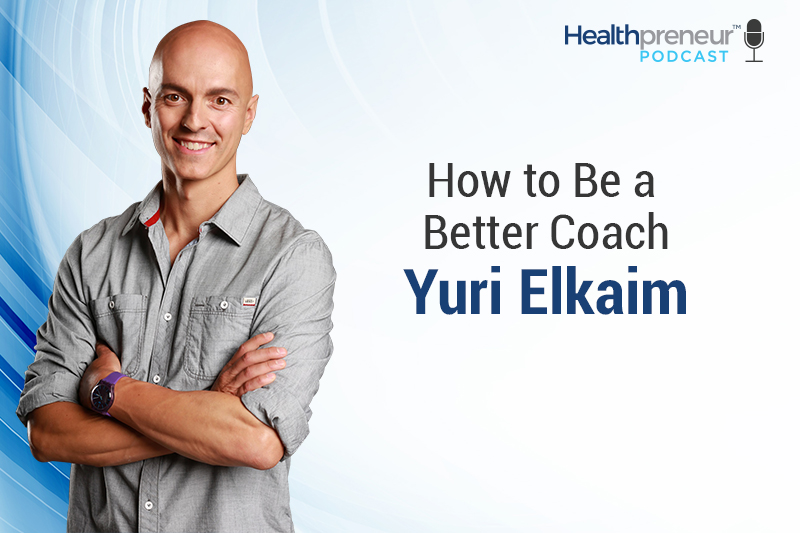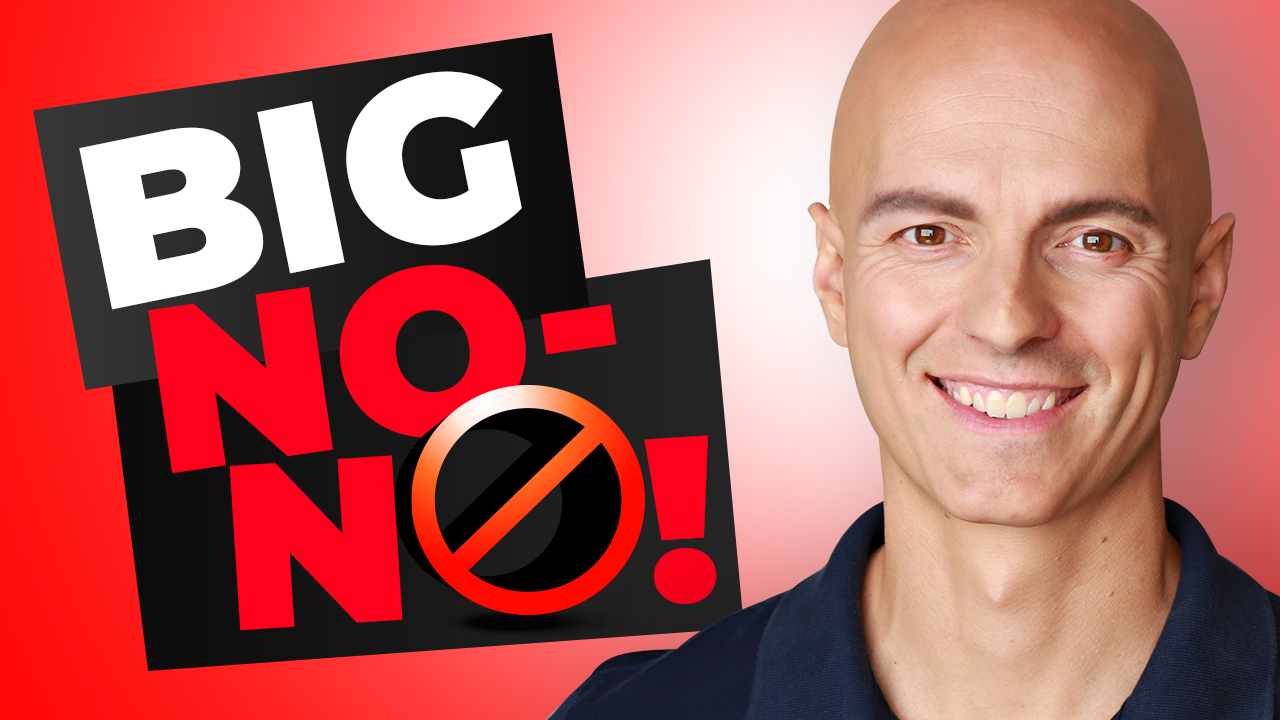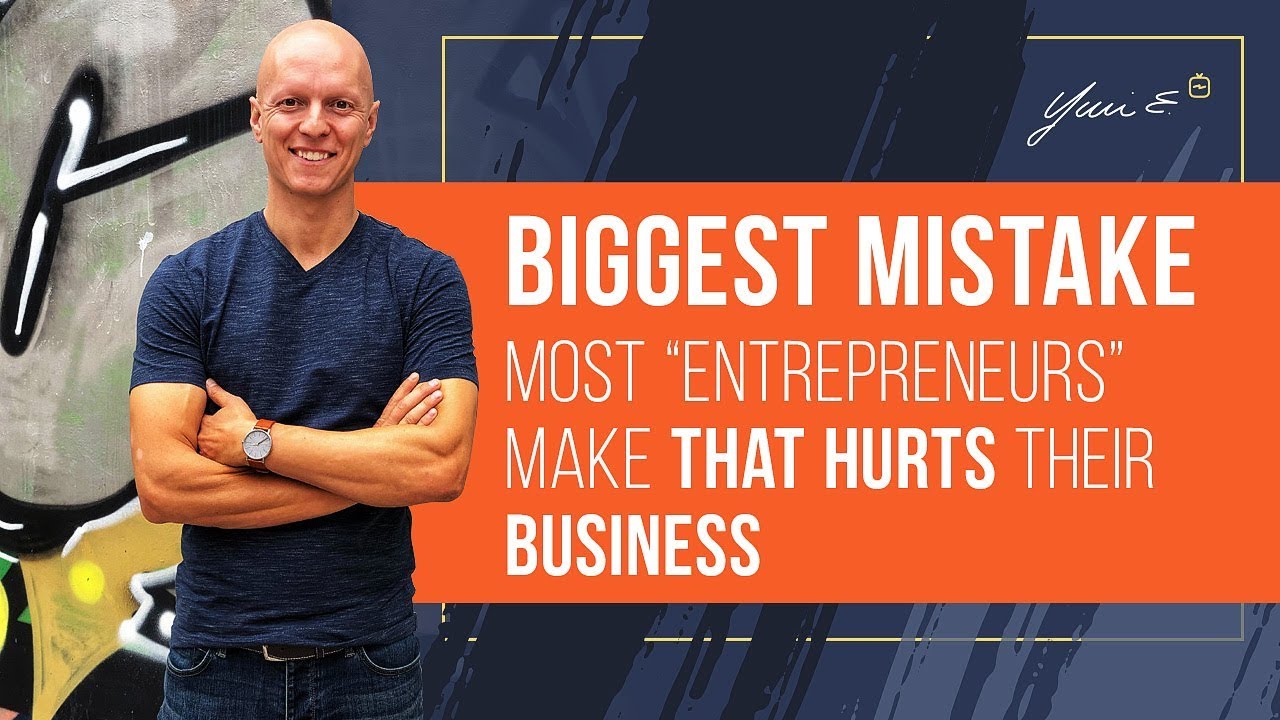How To Be A Better Coach

What’s up Healthpreneurs, and welcome to another solo round of the Healthpreneur Podcast! If you’re looking to up your communication game in your business or personal life, this one’s for you! The tip I’m going to give today is especially valuable if you’re a coach of any kind.
The trick is to ask more and talk less. What? Talk less? You know us coaches…we love to talk! But sometimes over-talking – and over-giving advice (that’s a thing?) – can be detrimental to our clients and our relationship with them.
In this episode, I’ll be revealing why that is, and what we should be doing to avoid overdependence, empower others to think for themselves, and help them figure out their own solutions.
I’ll discuss how we can be better communicators by asking better questions and getting better answers. Tune in!
In this episode I discuss:
1:00 – 3:30 – A tip to improve your communication and the book, “The Coaching Habit”
3:30 – 6:30 – Creating overdependence with advice vs. asking more and talking less
6:30 – 8:30 – What smart coaches do to empower others to figure out solutions
8:30 – 11:00 – Learning how to ask better questions to get better answers and examples
11:30 – 12:30 – How asking questions will improve your business and personal life
Transcription
Good day, and welcome to the Healthpreneur Podcast! I’m excited to be back. Today I want to share a cool resource and epiphany that I think will help you become a better coach. Whether you’re coaching clients or communicating with people, kids, or anyone else, this will impact and improve many aspects of your life as they pertain to communication with others.
A tip to improve your communication and the book, “The Coaching Habit”
This was inspired by a book I recently read called, “The Coaching Habit” by Michael Bungay Stanier. It was a quick read; I finished it in a day. I love actionable books. You get the point, you don’t need 500 pages of nonsense, and it’s useful. The whole idea in this book is that we, as the experts, tend to spend too much time talking and spewing out advice too quickly.
The reason I read this book is because I know that, for me, becoming a better coach is extremely valuable. For me, as a parent and coach, I help equip others with better coaching skills, too. I’m all about learning and growing, it’s just part of who I am. It’s part of my DNA and probably yours, too.
I’ve been known to, when someone asks a question, jump in with advice. I say, “Hey you should do this,” or “I’ve done this,” or, “This has worked well for me,” etc. If you’ve ever found yourself in the same boat, welcome to the club of overachieving advice givers. Let’s just call it that.
The book explains that, when you jump in to give advice too quickly, a couple things that happen.
Creating overdependence with advice vs. asking more and talking less
When you give advice too quickly, you immediately create overdependence. That is powerful because I’m all about empowering people to figure out their own solutions. I want to just guide them to that answer.
But what I find myself doing quite a bit, whether in business or health, is giving them the answer a lot of the time.
What that’s doing is training them to not think on their own, but to come to you for the answer. And as a coach, that’s a bad thing. It’s not the greatest thing because, although it’s nice for people to rely on you for support, it also means they rely solely on you for moving forward with their stuff.
So, whether you’re helping someone on the health side of things or in business, you must be able to empower people and challenge them to figure out their own solutions. The whole premise of the book is to ask more and talk less.

We have strategy calls – we call them result accelerator calls – with prospective clients, and we’ve always had guiding principles for the way we do these calls. And the number one thing I wrote way back in the day was, “Ask more, talk less.”
It’s funny we tend to fall back into old habits. Yes, we ask questions, but there are times on those calls where I spend way too much time talking. And when I spend too much time talking, the other person tunes out.
The way humans work is, “What’s in it for me?” We love hearing ourselves speak. Maybe I have a podcast because I like talking, I don’t know. But when you’re speaking with someone else, it’s important to ask questions, let them speak, and just be quiet.
If you observe most social interactions, the tendency is to ask a question, and allow the person to respond while thinking how you can jump in next. “Well that’s what happened to me when I was…” and the other person responds, “Oh, totally. I remember this one time when I…” It’s always about us. We’re just kind of one upping the other person.
It’s never about going deeper with questions, right?
What smart coaches do to empower others to figure out solutions
You know you’re in a bad conversation when the first couple sentences or the first couple words are, “You should.” Whatever comes after “you should” is nonsense because advice is about to come.
Smart conversationalists and smart coaches, instead of going down the, “you should” or, “here’s what’s worked for me” route, ask a follow-up question.
A follow-up question might be, “What’s the real challenge here for you?” Or, “What else?” Asking questions that go a little bit deeper allow the person to elaborate on their problem and help them figure out a solution.
I want to give you an example of how this came into my life a couple days ago. One of our Mastermind members posted inside our Facebook group about a couple different headlines that he had for some new articles. He said, “Three headlines. What do you guys think of these?”
Old Yuri would have said, “Okay, number three is good but here’s how I would change it.” That’s what I would have done because I thought it would serve him best to give him the easy path. Instead, what I did was reframed it into a question. I said, “This one sounds good but I think you give away a little bit too much in the headline and reduce some of the curiosity, so how can you rephrase this to increase curiosity to get the click more effectively?”
That’s how I rephrased it. So instead of giving him the answer right out of the gate, I ask him to go back to the drawing board, think it through, and figure it out with a little bit of guidance. When we allow someone to answer their own question, it creates deeper learning, meaning, and retention for them.
When they come to their own discoveries and conclusions, it will be a thousand times more meaningful to that person.
When someone comes to you with a problem, you might say, “Here’s what you should do.” You have the solution. You want to help people. But I want to encourage you to ask more questions. If you need help with that, start off by picking up the book, “The Coaching Habit.”
Learning how to ask better questions to get better answers and examples
It’ll give you some quick questions to add to your arsenal if someone’s come to you with a question or a problem. For example, you might start off by saying, “This is great. I’ve got a few ideas. But what’s coming to you, first and foremost?”
Get a little feedback from them. Or if they come to you with a problem, you might say, “What’s on your mind?” Then, “What else? Is there anything else? What specifically do you want?” Help them get clear by figuring things out.
Several years ago, when I was working with Strategic Coach and Dan Sullivan – great program by the way – one of the things he said was, “You can’t change the way a person thinks, but you can give them the tool that helps them change the way they think.” That tool, a lot of times, is simply asking questions.
That thinking deepened and seated itself in my brain. A lot of the worksheets, frameworks, and thinking tools I provide for my Mastermind members all stem from that initial learning from him. Now, for instance, if we’re doing one of our Mastermind meeting hot seats, people don’t just sit in the hot seat and start spewing information.
They fill out a one page sheet called the hot seat helper. That one page, in five minutes, will give them extreme clarity on where they need help and the specific question to ask. When they get up on that chair, we’re not spending an hour on their stuff. We’re spending twenty minutes, cutting to the chase, getting deep in their issue, and figuring out a solution.
But the solution is only as good as the question, right? So if we want better answers, we have to ask better questions.
How asking questions will improve your business and personal life
If you are in a better position of looking for help, get extremely clear on the question. I have people that come to me with questions. One of our Mastermind members emailed me a few things like, “It would be really helpful if you could show me some stuff on this, this, and this.” I thought, “Dude, that’s a lot of stuff. There are a lot of different things in what you just asked me there.”
It would be like throwing the Yellow Pages at him. I said, “What specifically do you want? What’s the first thing that we can look at and move forward from there?”
So, the message here is to ask questions more, talk less, and allow others to express themselves so they can come to their own conclusions. As a coach, you’ll help them create deeper, meaningful breakthroughs, and as a human you’ll connect with people at a better level because you’ll show you care by asking questions and letting them talk.
If you’ve enjoyed this, great! Remember to subscribe to the Healthpreneur Podcast if you haven’t already. And if you want to take your business to the high six and seven figures in the health and fitness arena, then I invite you to join our Seven Figure Health Business Blueprint. It’s a free online training. It’s a terrific 75 minutes that will open your eyes and give you some key insights to help you move forward in a big way, instead of wasting a lot of time with a thousand things that don’t.
If you’re interested in that, head on over to healthpreneurgroup.com/training. Grab your free spot over the next day or so at whichever time works best for you. I look forward to seeing you. Thanks for joining me. Keep going out there, do your awesomeness, be great and do great, and I’ll see you in our next episode on Wednesday.
If you enjoyed this episode, head on over to iTunes and subscribe to Healthpreneur™ Podcast if you haven’t done so already.
While you’re there, leave a rating and review. It really helps us out to reach more people because that is what we’re here to do.
What You Missed
In our last episode, we had Dr. Josh Axe as our guest, so if you missed this episode, you’ll definitely want to tune in to this one.
Josh is the co-founder of The Ancient Nutrition Company, which offers Organic Bone Broth Protein, Multi-Collagen, SBO Probiotics, herbal supplements, and more.
His website, draxe.com, gets 15 million visitors a month and he’s a regular guest expert on the Dr. Oz show. The crazy thing is that his success reached these heights in only 4 years.
Any Healthpreneur will massively benefit from listening to this episode. From team-building to content strategy and from scorecards to mentorship, there are tons of wisdom-bombs that Josh provides that are sure to move the needle in your business. Tune in!
Related posts
June 10, 2021
How Health Professionals Are Growing a Private Practice Online in 2021
If you’re trying to grow a…
September 22, 2019
Biggest Mistake Most “Entrepreneurs” Make That Hurts Their Business
One of the biggest mistake…





